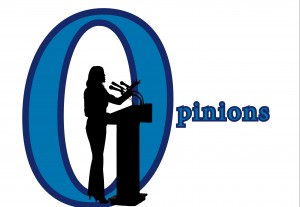Last Thursday, the infamous Tom Perkins agreed to an interview with Fortune magazine to further discuss his ideas of “The War on the 1%.” Perkins, a billionaire venture capitalist and co-founder of the VC firm Kleiner Perkins Caufield & Byers, acquired his fame in January after submitting a letter to the Wall Street Journal comparing the persecution of Jews in Nazi Germany to the way rich people are treated in the United States. But that wasn’t all.
During the interview last Thursday, Perkins outlined his radical theory of proportional taxation and policy that has sparked a media firestorm across the country.
Here is the Tom Perkins system: “You don’t get to vote unless you pay a dollar of taxes,” he said. “But what I really think is that it should be like a corporation. You pay a million dollars in taxes, you get a million votes. How’s that?” The crowd just laughed at Perkins.
However, the Perkins system is not that radical if we study it from a proportionality viewpoint. In fact, Perkins is embracing the exact same values of the Progressives when they adopted graduated tax rates to achieve so-called economic justice a few decades ago, and applying those ideologies to a different problem.
If our political liabilities (taxes) should be based on a system of justice proportional to our incomes, then why shouldn’t our political voice be equally proportionate? According to Progressive ideals, shouldn’t proportionality rule in every context then?
Unfortunately, proportional taxation was not, and still is not enough for our Progressive friends. A flat tax system would be perfectly proportional, and most conservatives would gladly accept it in a heartbeat. If you make $1,000,000 in a year, you will be paying 10 times as much taxes as someone who makes $100,000 a year. But that distribution is clearly not enough for the Progressives.
In today’s modern tax system, not only must high-income earners pay taxes that are proportional to their share of income, but they must also pay additional taxes that are insanely disproportional to their share of income — 15 percent on today’s dollar earned, 20 percent on tomorrow’s dollar earned.
Taxes are necessary for the general public because many services and programs offered to citizens could not be managed effectively under any other system. Tax dollars are used by the federal government to support Social Security, health care, national defense, public schools and more. These services are necessary.
But now we run into a slight problem. The Principle of Equality, as outlined in the Declaration of Independence, proposes that every man’s position in relation to the federal government should be the same regardless of wealth or income. So, why should a wealthy man pay more for the use of the courts or for the protection of the police than someone who earns less money?
The usual answer to this question is “because the rich can afford more.” This is true, but this is flawed reasoning. The rich could pay more for a Subway sandwich or for a Toyota Corolla, but this is not the case.
Vice President Joe Biden claims that paying taxes is “patriotic.” Former Secretary of Labor Robert Reich defined paying taxes as “the price of citizenship.” Assuming these two noble gentlemen are correct in their words, is the ordinary, middle-class individual not an equal member of society? Is he less of a patriot because he pays fewer taxes?
Liberals constantly complain about the top 10 percent of Americans because they bring in 45 percent of the total income. Yet, the top 10 percent pays over 70 percent of total federal taxes. Regardless if we accept proportional taxation or not, the highest income earners in America are paying a far more disproportional share of taxes in relation to their share of income.
The Left will defend this disproportionality by arguing that the wealthy have “benefitted more” from government services and programs. But let us examine this more closely.
The people who can afford to send their kids to private schools benefit less from our government public-school system than those who cannot afford private education. People who can afford to finance their own retirements benefit less from Social Security and Medicare — our largest domestic expenditures — than those who do not. Overall, the top 10 percent of Americans, by definition, benefit less from the leftist collection of entitlement programs and federal taxes.
If we were to be truly equal in this country, each household would be paying roughly $31,000 in taxes annually. And the reason why the average U.S. household pays nowhere near that much is made possible by the fact that individuals like Mr. Perkins do.
The stretch from “No taxation without representation” to “Proportional taxation with proportional representation” does not actually seem so improbable today.










